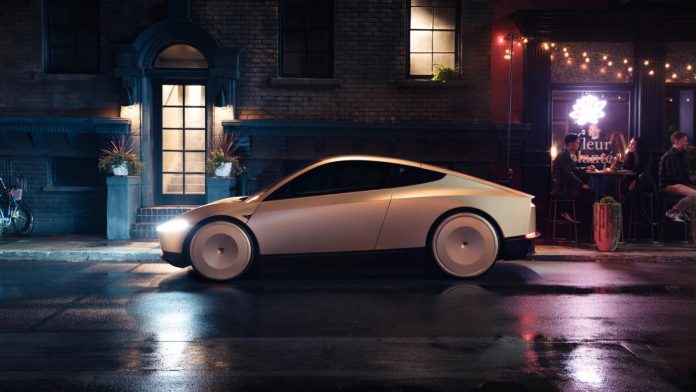Tesla CEO Elon Musk presented the design of Tesla’s prototype robotaxi, the two-seat Cybercab, which has faced criticism over its seating capacity.
The robotaxi, designed as a low-profile two-seat sports coupe, the exact opposite of a typical taxi with room for multiple passengers and luggage, will reach production sometime in 2026 and will cost less than $30,000 apiece, Musk said at a much-hyped event near Los Angeles late on Thursday.
The new project met with criticism over precisely how the two-seat robotaxi would meet the needs of families heading to a restaurant or airport. In addition, investors derided the design and lack of financial details.
“When you think of a cab, you think of something that’s going to carry more than two people. Making this a two-seat-only car is very perplexing,” according to Jonathan Elfalan, vehicle testing director for the automotive website Edmunds.com.
Waymo’s former CEO John Krafcik said Tesla’s design looked “more playful than serious,” and that the two-door configuration posed challenges for older passengers and those with disabilities. Waymo has a fleet of about 700 Jaguar Land Rover cars that can seat four passengers, which is the same number of seats in Amazon’s cars.
Delivering a robotaxi and conquering a still nascent and heavily regulated market will be crucial for Tesla, as Musk dropped plans for a smaller and cheaper car amid slowing demand for electric vehicles and shifted focus to Tesla’s growing ambitions for autonomous vehicles. The robotaxi business could dramatically raise Tesla’s valuation to $5 trillion from the current $700 billion.
